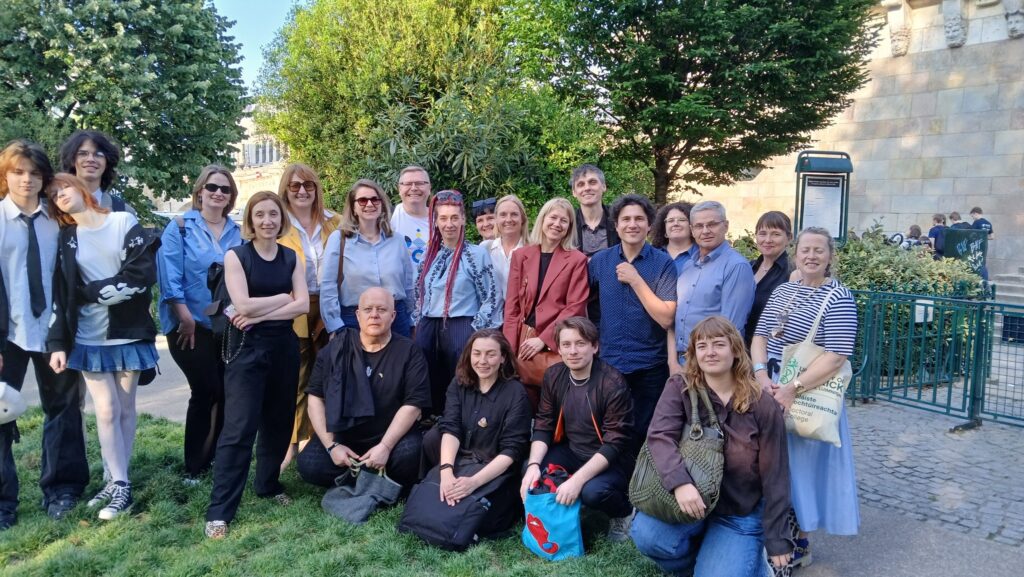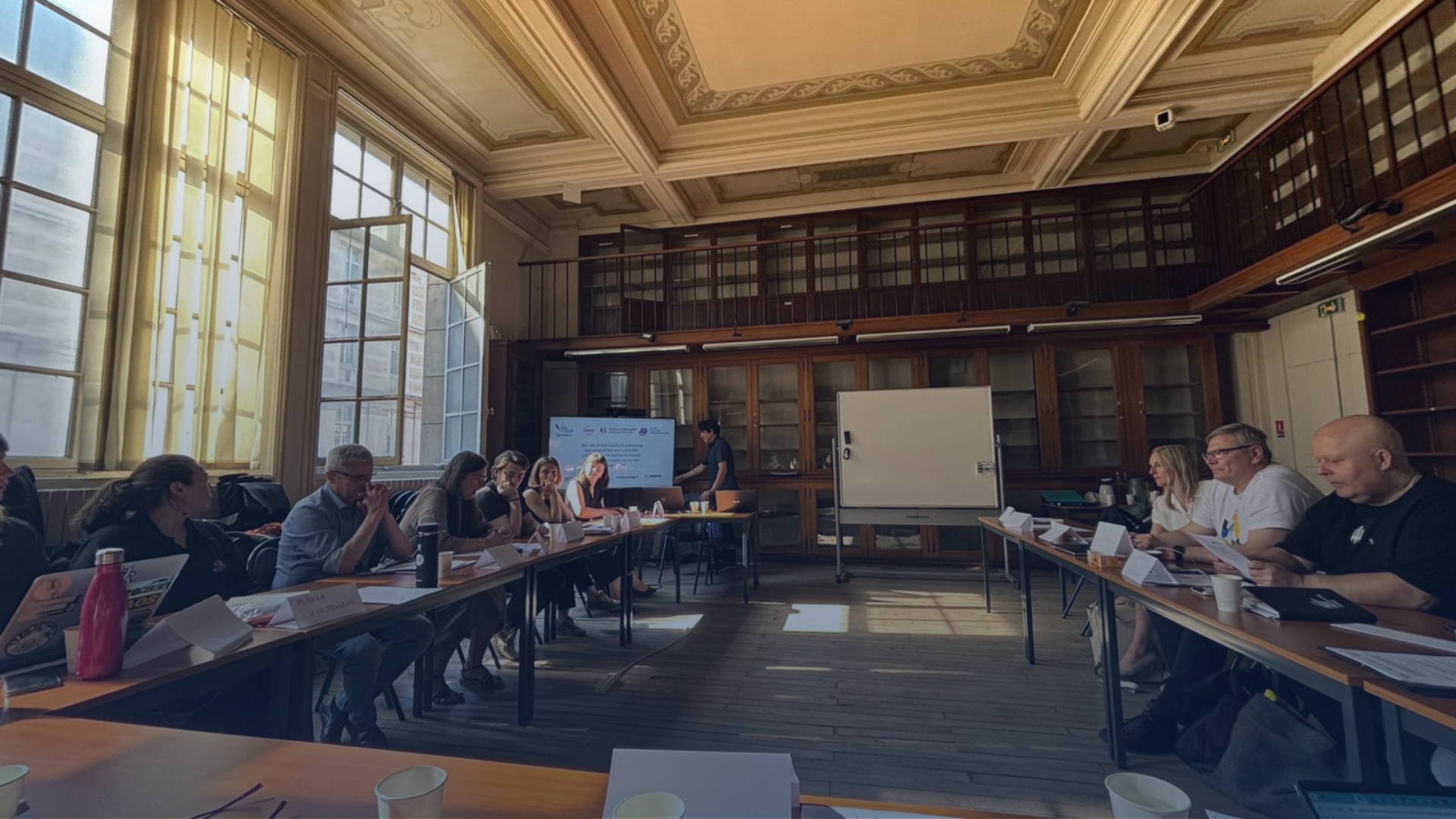For the second time, an expert meeting titled “The role of civil society in addressing the needs of key and vulnerable populations among East-European migrants and refugees across the European region in the context of their access to HIV and TB care” was held in Paris.
On May 14–15, the Sorbonne gathered demographers, sociologists, public health researchers and practitioners, community representatives of vulnerable and at-risk Ukrainian refugees, along with experts from regional and international organizations and UN agencies.
The Alliance for Public Health was represented by Nadia Yanhol, iSoS project manager and health care expert. She presented Ukraine’s experience in active TB case-finding among internally displaced persons (IDPs), and highlighted the successful approach implemented in Odesa, where government and NGOs work together within the Fast-Track Cities initiative to tackle HIV and other socially significant diseases. The need to support and expand PrEP (pre-exposure prophylaxis) programs for migrants was also emphasized as a highly effective HIV prevention strategy.
Key topics discussed:
- Preliminary findings from the project “Ukrainian refugees in receiving countries: barriers, coping strategies and community engagement to enable effective access to HIV and TB care”;
- Main health and social challenges facing migrants and refugees across Europe;
- The importance of estimating the size of key populations among migrants for effective health programming;
- The critical role of civil society and migrant-led organizations in connecting newcomers to care;
- Innovative practices and models that ensure quality access to HIV and TB services for migrants and refugees.
This event served as a vital platform to exchange experiences, strengthen partnerships, and shape people-centered health responses that leave no one behind.

